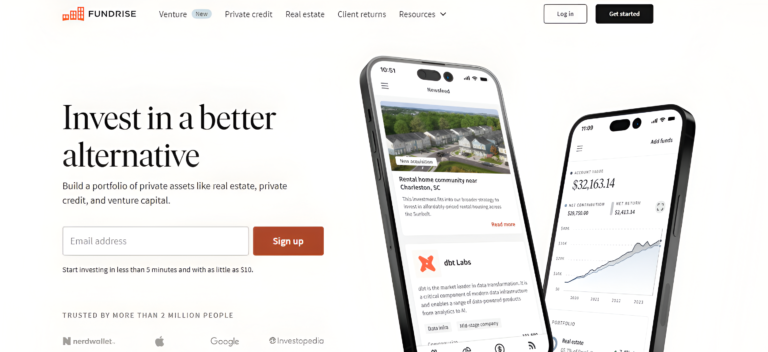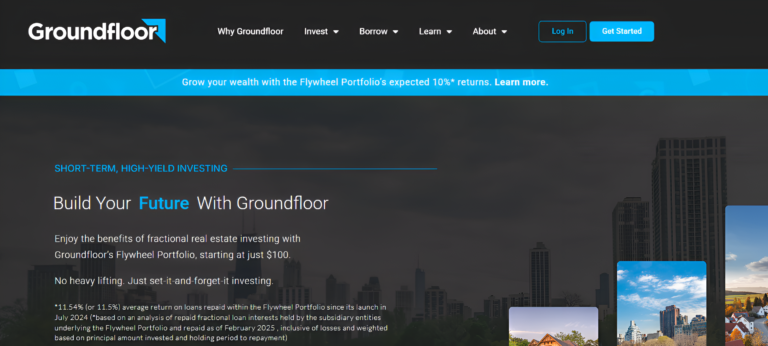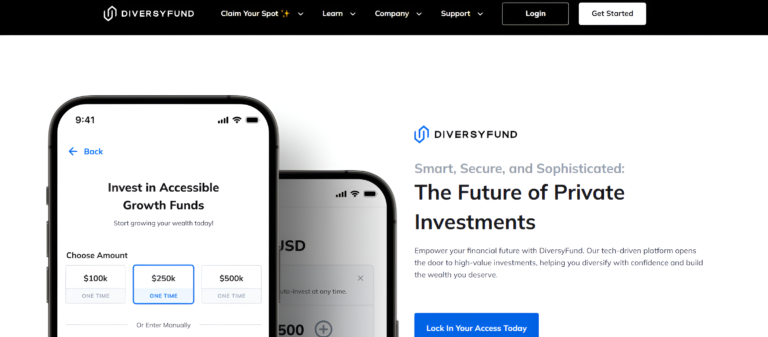Introduction
The dream of earning passive income through real estate has long been enticing, but traditional property investment often requires significant capital, time, and expertise. Enter real estate crowdfunding platforms—a game-changer democratizing access to this lucrative asset class. By leveraging technology, these platforms allow everyday investors to pool resources and invest in properties with minimal upfront costs. This article explores how low-investment real estate crowdfunding platforms can generate passive income, highlights top platforms, and offers tips to navigate this evolving landscape.
What Is Real Estate Crowdfunding?
Real estate crowdfunding platforms are online marketplaces connecting investors with developers or property owners seeking funding. These platforms enable individuals to invest small amounts in residential, commercial, or industrial projects, bypassing traditional barriers like high entry costs. Investors earn returns through rental income, property appreciation, or interest on loans, depending on the investment type.
The concept gained traction after the 2012 JOBS Act in the U.S., which allowed non-accredited investors to participate in private equity deals. Today, platforms cater to both accredited and non-accredited investors, offering diverse opportunities from fractional ownership to real estate debt.
Why Choose Low-Investment Real Estate Crowdfunding Platforms?
Accessibility
Gone are the days of needing six-figure sums to invest in real estate. Many platforms now require as little as $10, making it feasible for anyone to start building a portfolio.Passive Income Potential
Whether through monthly rental yields or profit-sharing upon sale, these platforms automate income streams, requiring minimal effort after the initial investment.Diversification
Spread risk by investing in multiple properties across locations and sectors (e.g., residential, retail, industrial), reducing exposure to market volatility.Transparency
Platforms provide detailed project information, performance updates, and exit strategies, fostering trust and informed decision-making.
Top Low-Investment Real Estate Crowdfunding Platforms
Here are five platforms ideal for investors starting small:

Minimum Investment: $10
Focus: eREITs (electronic Real Estate Investment Trusts) and eFunds across residential and commercial properties.
Why Invest: Fundrise’s low minimum and automated portfolio options make it perfect for beginners. Returns come via dividends and appreciation, with historical averages of 8–12% annually.

Minimum Investment: $10
Focus: Short-term real estate debt (fix-and-flip loans).
Why Invest: Groundfloor offers high-yield, short-term loans (6–12 months) with returns up to 10%. Ideal for those seeking liquidity and lower risk through secured debt.

Minimum Investment: $500
Focus: Multifamily apartment complexes.
Why Invest: DiversyFund’s Growth REIT targets value-add properties, aiming for 10–20% annual returns. It’s ideal for those comfortable with longer-term holds (5+ years).
Tips for Getting Started
Conduct Due Diligence
Research platforms thoroughly. Check track records, fee structures (e.g., management fees, performance fees), and user reviews. Verify regulatory compliance (e.g., SEC registration).Diversify Strategically
Allocate funds across different platforms, geographies, and investment types (equity vs. debt). This mitigates risk if one sector underperforms.Understand the Risks
Real estate markets fluctuate, and crowdfunded investments can be illiquid. Debt investments are generally safer but offer lower returns than equity.Start Small
Test platforms with modest amounts before committing larger sums. Monitor performance and adjust your strategy as needed.
Risks and Challenges
Market Risk: Economic downturns can depress property values and rental demand.
Platform Risk: Choose established platforms to avoid operational failures or fraud.
Liquidity Risk: Most investments lock capital for months or years.
Regulatory Changes: Shifts in legislation could impact returns or accessibility.
Conclusion
Low-investment real estate crowdfunding platforms have revolutionized wealth-building, offering passive income opportunities once reserved for the elite. By combining accessibility, diversification, and transparency, these platforms empower investors to grow their portfolios without hefty upfront costs. While risks exist, careful platform selection and strategic diversification can maximize returns while minimizing exposure.
Whether you’re a novice investor or a seasoned pro looking to expand, real estate crowdfunding platforms present a compelling avenue to generate passive income. Start small, stay informed, and watch your investments pave the way to financial freedom.
FAQs
Q. How do real estate crowdfunding platforms work?
- Platforms act as intermediaries, vetting projects and listing them for investment. Investors choose projects (equity or debt-based) and contribute funds. Returns are distributed proportionally, either monthly/quarterly (rental income or interest) or upon project completion/sale.
Q. Are these platforms safe?
- While no investment is risk-free, reputable platforms conduct due diligence on projects and provide transparency. Look for SEC-registered platforms, low loan-to-value (LTV) ratios for debt investments, and user reviews. Diversification across projects also reduces risk.
Q. Can I lose money?
Yes. Risks include:
Market downturns reducing property values or rental demand.
Project failures (e.g., construction delays, developer bankruptcy).
Illiquidity (funds may be locked for months or years).

Owner of Paisewaise
I’m a friendly finance expert who helps people manage money wisely. I explain budgeting, earning, and investing in a clear, easy-to-understand way.


Your blog continuously engages me, sparking curiosity and prompting a deep reflection on each passage.
This blog post spoke to me on a deep level. It’s as if you’ve delved into my mind!